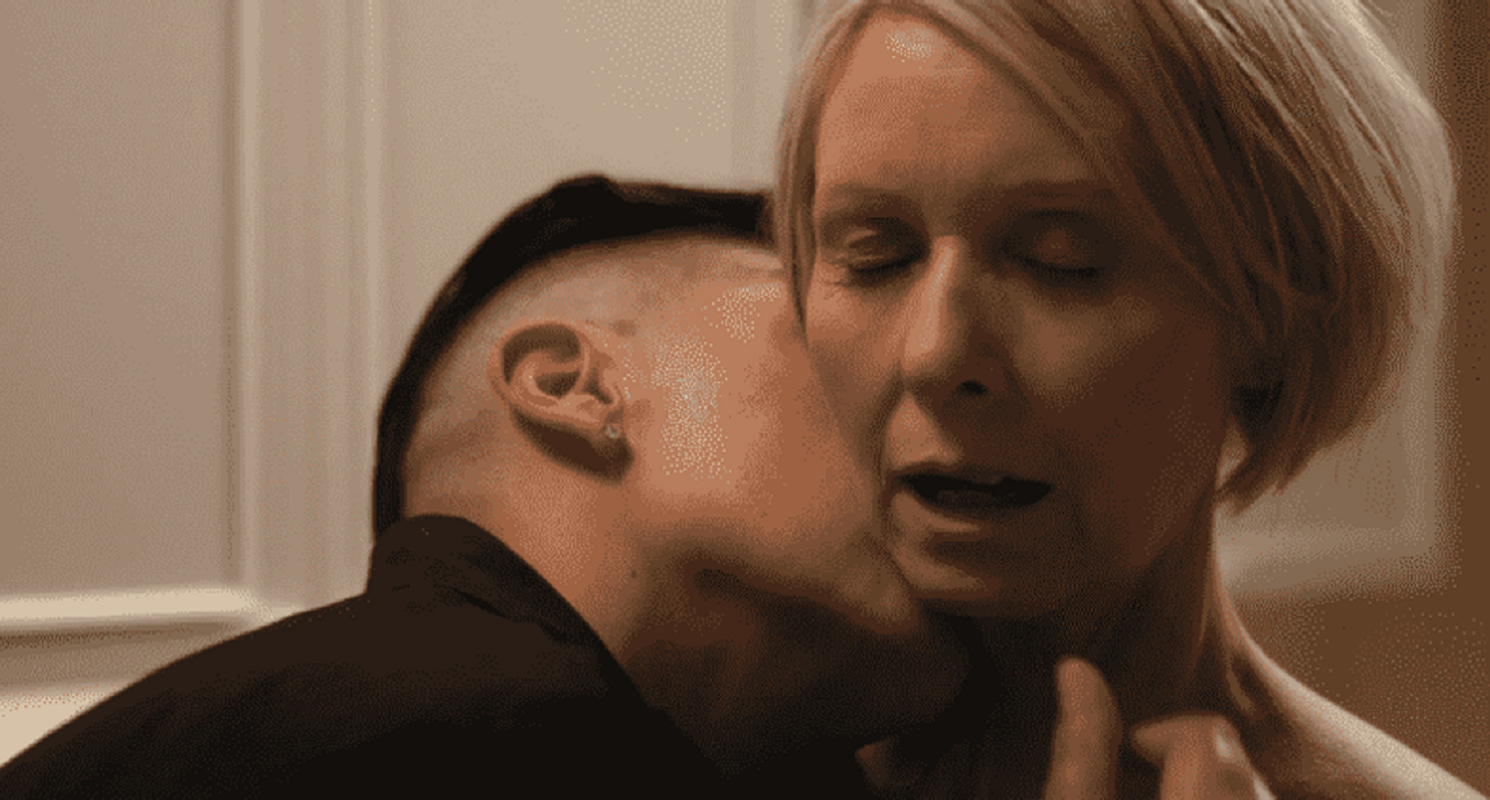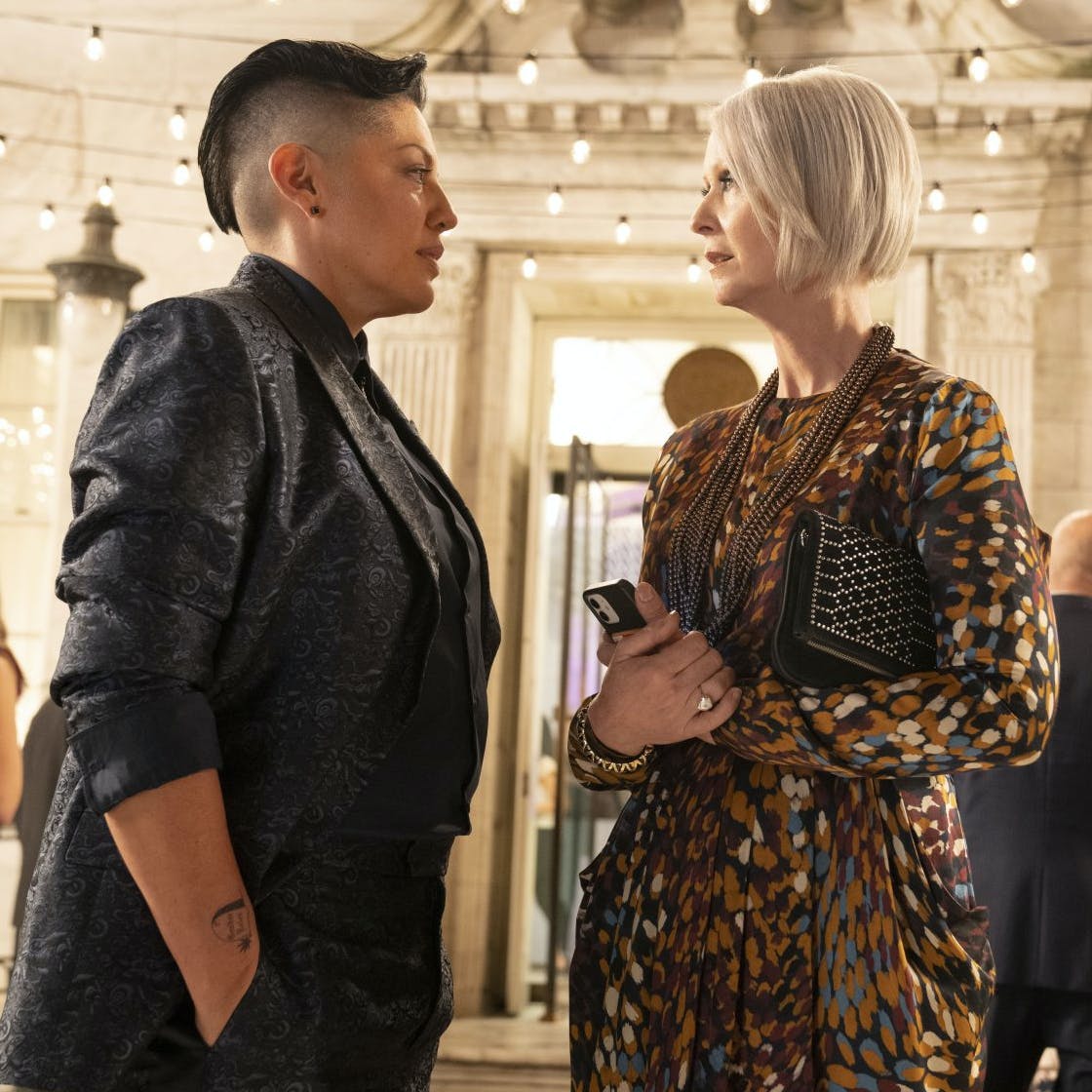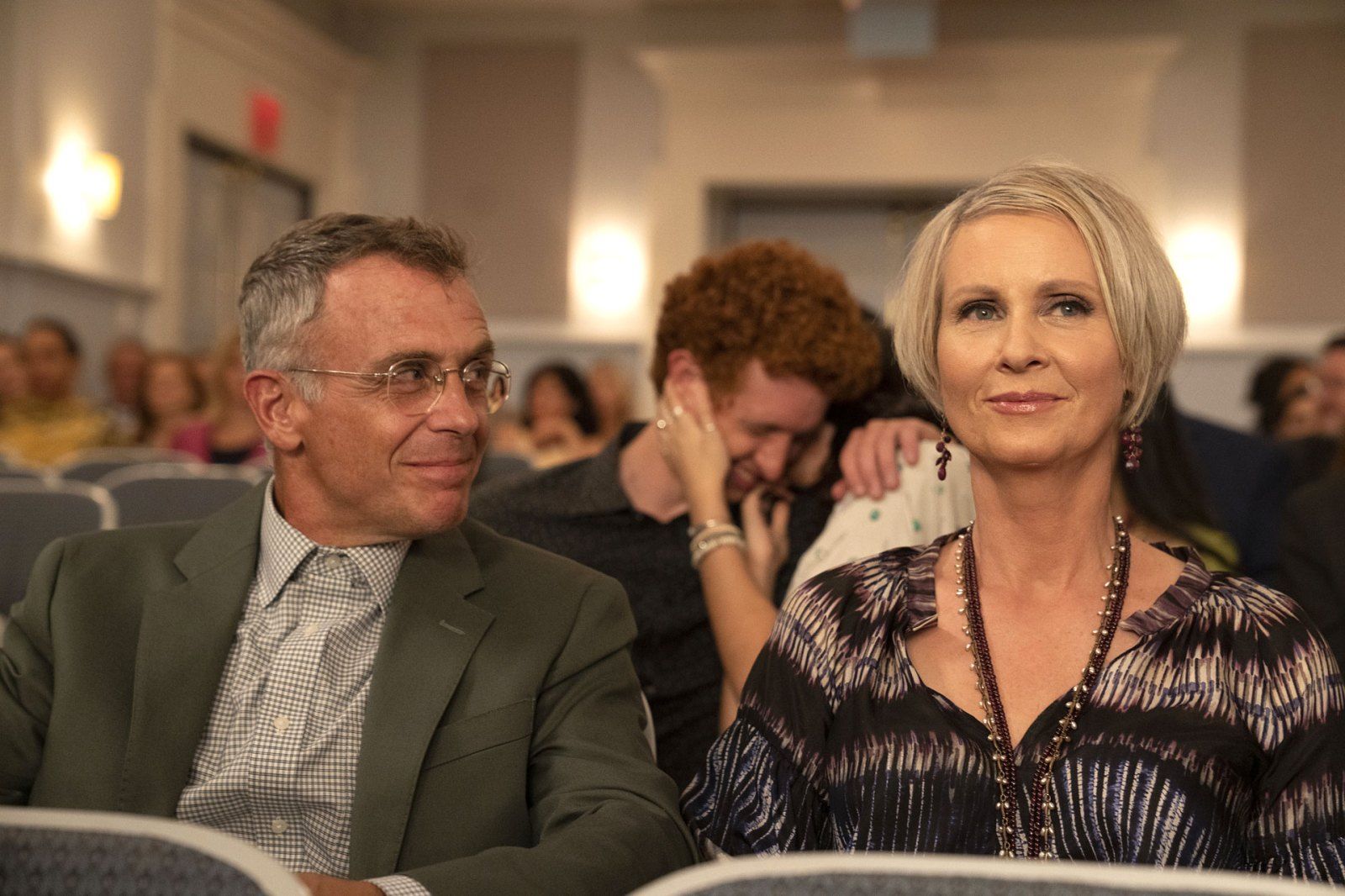Opinion | ‘And Just Like That’s queer Miranda storyline is a TV car crash’
Cynthia Nixon’s character exploring her sexuality on ‘And Just Like That…’ should have been an easy win. Instead, it's been mis-handled from the off, writes Jamie Tabberer.

Words: Jamie Tabberer; picture: HBO
‘Justice for Steve’ are three words I never thought I’d write.
At first, I was glad Miranda Hobbes’ husband was getting a lack of screentime on Sex and the City spin-off And Just Like That. In the 90s, when people lambasted Sarah Jessica Parker’s Carrie for being annoying, it was Steve – that voice, his general uselessness – I couldn’t stomach.
All the SATC men are annoying, in fact. Harry, Aidan, Smith… especially Big. How could the female casting be so genius, but the men so off? Or was this deliberate? Thank god we barely met the girls’ families.
For me, the show was always about those four women, and women generally, and singledom. Thus, I was profoundly disappointed when all four coupled off by the season six finale. (“All my friends are taken!” was such a sell-out line.)
Therefore, I’ve found Carrie’s bereavement in And Just Like That weirdly satisfying, because of the grit and gumption she’s showing. She’s the epitome of independence. Similarly, I’ve long wanted liberation of some kind from Steve for the clearly queer Miranda.
So, when paparazzi photos leaked of the now-out-and-proud Cynthia Nixon shooting a Pride scene in NYC for And Just Like That, I was excited. When Carrie’s achingly smooth podcast boss Che was introduced, I was really excited. And when the non-binary comic – played irresistably by Sara Ramirez – did blowbacks with Miranda, I was on the edge of my seat.

Sarah Ramirez as Che Diaz (left) and Cynthia Nixon as Miranda Hobbes in And Just Like That (Image: HBO Max)
From there, however, the storyline has been a car crash. And to my horror, and against my will, I’m sympathising with Steve.
First, Miranda and Che hook up in Carrie’s kitchen while Miranda is ‘caring’ for her friend post-hip operation. Who does that? An alcoholic, perhaps, so the scene just about makes sense. But it’s pushing it.
Then, a rattled Miranda initiates sex with Steve – who’s completely in the dark about her cheating – in an attempt to recreate the passion she shared with Che. The experiment fails.
Granted, Miranda and Steve’s sex life has been dead for years. But it was also dead when Steve cheated on Miranda in Sex the City: The Movie, before he quickly came clean, begging for forgiveness. Miranda, understandably, was full of rage. Their family imploded – they share a now-teenage son; also one-dimensional in And Just Like That – and she only just about forgave and reconciled with him by the film’s end.
How can And Just Like That writers treat their infidelity so differently? Especially when Miranda’s meant to be all about fairness and justice? Did they even watch the film? Veteran Sex and the City writers Julie Rottemberg and Elisa Zuritsky, who recently acknowledged ‘enraged Steve fans’ (who knew?) in a Vanity Fair chat, must have.
The whole sorry saga is just the latest example of well-meaning but often appalling writing on And Just Like That. Read: Miranda’s white saviour complex (they took it too far; she’s too smart for that); the explanation for Samantha’s absence (a joke – so Charlotte and Miranda mean nothing to Sam?); everything Charlotte-related (I just can’t).

David Eigenberg as Steve Brady (left) and Cynthia Nixon as Miranda Hobbes in And Just Like That (Image: HBO Max)
In this week’s episode, it gets worse. After Che, who thankfully has morals, calls Miranda out for going behind Steve’s back, Miranda asks her husband for a divorce. She initially plans to keep schtum about her cheating – or, by now, full-on affair – but then shares it as an afterthought.
Afterwards, she’s elated.
Is this really the super cool and wise woman who inspired the hit self-help book We Should All Be Mirandas? Is this really the same universe that put Carrie through the psychological ringer for her affair? Why does the straight woman feel guilt about it and the queer woman not?
“I’m in a rom-com!” declares Miranda, hot-footing it to Che after her confession, all but daring fate to ruin her happiness. This clearly won’t end well. And will that make me feel better? No.
What are the writers playing at? If this is to make the point Miranda isn’t perfect, and makes mistakes – like all women, like all people – it’s not landing for me.
There’s been a lot of talk about And Just Like That hamfistedly trying to correct Sex and the City’s past wrongs. The queering of Miranda should have been an easy win, and with Nixon and Ramerez’s crackling chemistry, in some ways it is. But had Miranda and Steve gone open, as anyone in a sexless but loving relationship might, it would have felt both progressive and authentic. Failing that, a clean break. If anyone has the courage for that, it’s Miranda.
Instead, the storyline has conflated queerness with lying and cheating, and gobsmackingly cold behaviour. That’s catnip to anti-LGBTQ trolls online, already responding with vitriol to such a high-profile non-binary character in Che. What a missed opportunity.
For all its flaws, Sex and the City changed hearts and minds. And Just Like That is stirring shit up, and not in a constructive way.
To be clear, I believe exploring your sexuality at any point in your life is A-OK. That open and otherwise unconventional relationships and marriages are the future, for all. That people should have sex with whoever they want, so long as it’s legal, consensual and there’s no deception involved, because, you know, STIs.
I also believe we shouldn’t overthink TV shows. But I’m too emotionally invested in Miranda for that – and want justice for her and Steve.
And Just Like That continues Thursdays at 9pm on Sky Comedy and NOW in the UK.
